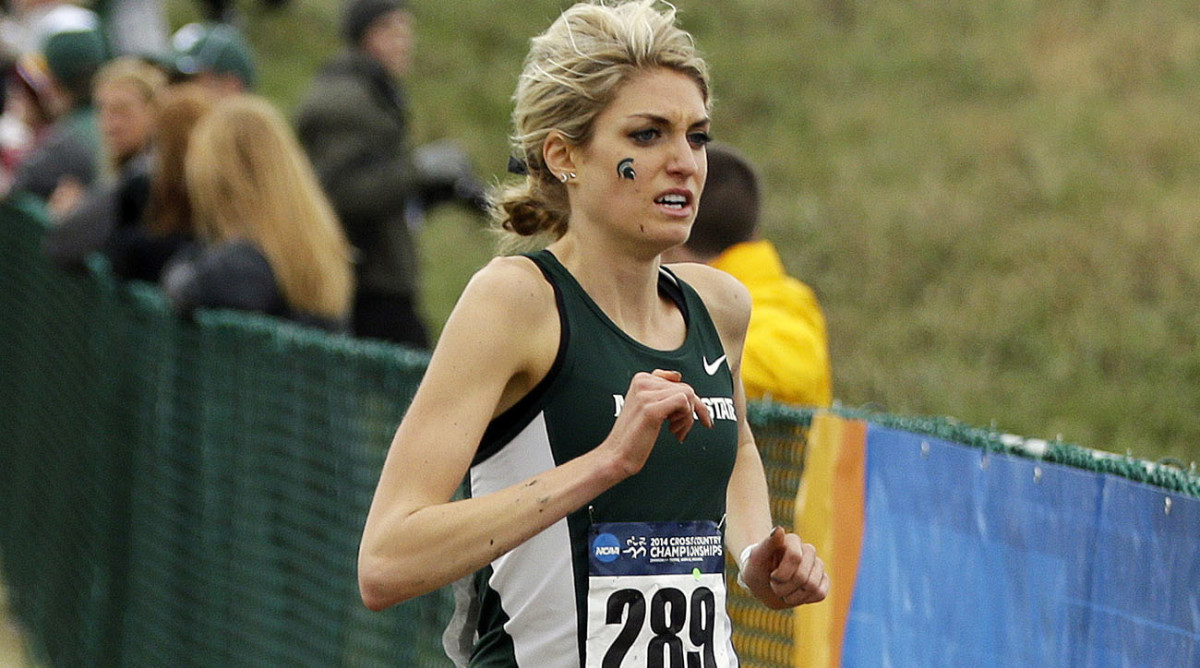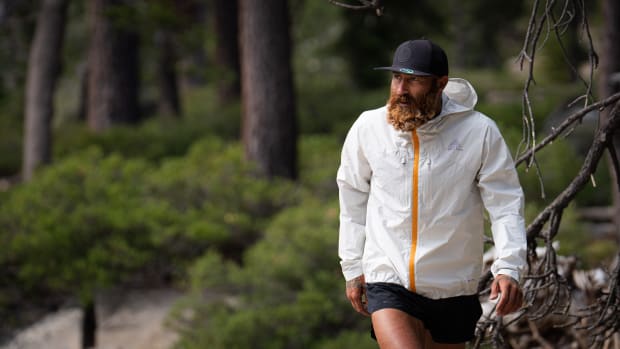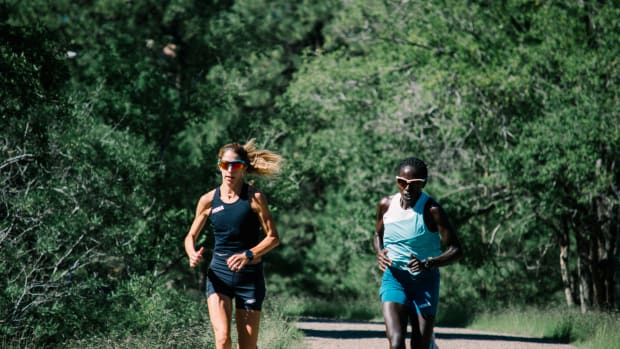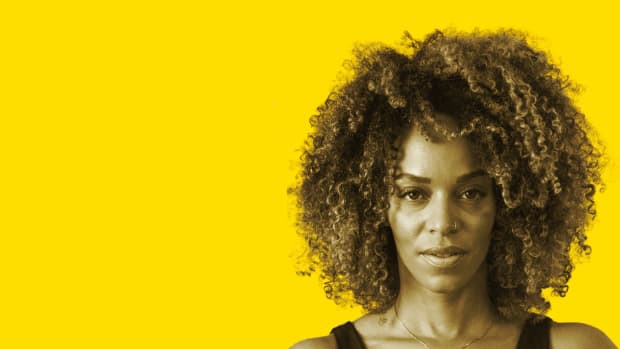
Should athletes look a certain way? Michigan State runner takes stand on body image
Rachele Schulist is a budding star in track and field, earning All-American honors at Michigan State in cross-country. In 2014, she led the Spartans to their first NCAA Cross Country Championship title with a fourth-place finish with a time of 19:54.30 for 6K (3.7 miles).
While photographs captured the joy and elation from her team’s celebration, Schulist opened up about her struggle with weight and the temptation to get smaller in a recent Instagram post. She compared two photographs of finishing her race at the 2014 and 2016 national championship, where she took 12th place in 20:07.0.
“Even though I knew being too small is not sustainable, it was hard for me to believe that I could achieve success and be the runner I used to be without it, and I allowed myself to believe this for the better part of this season. My coaches told me time and time again that I am still the same runner as 2014, just stronger now and have the talent to be successful, but whenever I looked back at what I used to be I was discouraged all over again. The better part of this season I allowed this lie to dictate my running, and my running suffered as a consequence,” Schulist wrote in the post. “…The truth is, the idea that you have to look a certain way and be thin to be a fast runner is bulls***.”
Schulist’s post has garnered attention and support from the running community. She talked about the process behind coming to share her story in an interview with SI.com.
Chris Chavez:What was the process like putting your feelings into words and attaching two photos to it?
Rachele Schulist: I was thinking about doing something like that since the beginning of the cross country season. My running hadn’t been going well. I knew my body and what I looked like didn’t truly affect my running. I could be successful without being as small as I was in 2014. I knew deep down but putting it into practice was hard. Going into the NCAA championship, I told myself ‘I need to stop and let go of this. It’s a waste of a talent. It’s not fair to my teammates, coaches or anyone if I’m not all in.’ I ran well at nationals and being able to know what I could, I knew I had to share this. I could get my message across and back it up.
CC: Before you published, you showed to your teammates and coaches. Who else did you consult with before coming out with the post?
RS: Before the season, I was running with my dad and talking about running and how things were going. We touched on body image and he’s always been one to say ‘Rachele, you did well in 2014 despite what you looked like not because of what you looked like. You’re still that person that’s in you.’ I told him that I wanted to do a post comparing who I was then and who I am now. It was apparent.
I was talking to my coach Lisa Senakiewich last week and she said, ‘I like that picture you posted from nationals. You look really good. I was looking at ones from 2014 and you look so much better now. I showed coach (Walt) Drenth and he was thrilled about it. You look so much stronger.’ They were ecstatic and I told them my idea. It’s hard because in the running community no one talks about it and I think it needs to be out there. She said it’s a good idea but I had to be comfortable with how personal that aspect of my life is.
How America's top marathoner packed on 40 pounds of muscle after retiring
CC: In 2014, you were running really well. Your team was running really well. How happy were you actually?
RS: It was not what it seemed like on the outside. The running was going well but my head and self-esteem wasn’t high. I wasn’t confident in how I looked. I’ll be honest. I spent a lot of nights crying just because I was so anxious, sad and hungry all the time. It was hard—really hard. It’s not sustainable. I wasn’t really connected with anyone. I would run alone. I couldn’t be close with my team. I was cold and extremely selfish. I’m so thankful that my teammates and coaches were there for me and didn’t push me away.
One of the biggest things that’s touched me this year, I was talking to my roommate and teammate Aubrey Wilberding. I’d show her pictures from 2014 and ask her how am I supposed to see this and look and myself now and be confident. She said, ‘Rachele, you’re so much more than 2014. The things that you did then, you didn’t do it because of that. I would pick this version of you over 2014 Rachele any day.’ That really hit me and I started crying because she told me I was valuable as a person even if running wasn’t going well.
CC: The body image ‘lie’ is a problem across many sports and in particular running. What do you think has contributed to it becoming so widespread?
RS: In running, you’ll see that there’s so many times that there’s individuals, myself included, that do so well and they’re so small. You’ll see them at nationals and you’ll notice ‘Oh look at all these All-Americans and many of them are so small and it must work.’ For a little bit it does work but then you never hear about those people ever again or you hear that they’re injured. That happens a lot. It’s hard because people see it’s successful but only for a little bit.
Fridge Raider: Inside the vegan diet of Denver Nuggets forward Wilson Chandler
CC:How have you seen this in other sports?
RS: Anywhere on Instagram, you’ll see photos of females that are so small or have crazy abs. Some people are born that way and that’s awesome for them but in some cases it doesn’t necessarily mean that they’re always healthy. If you just see a picture like that, you can think ‘I can be like that because they just are.’ It doesn’t show the work they’ve put into it. I look at professional runners and it takes them a long time to develop the way they are. If you’re a young girl, you can see how muscular they are then you might not see the years and years of training to get there. They think I can just be that way. In our society, body image is such a hard thing due to social media because you can see a picture and just compare. I was constantly comparing.
CC: Have you been surprised by the number of replies to the post?
RS: I had no idea that it would touch this many people. When I first posted it, it was scary to do but I had roommates around me to support me. I got a text right away from a girl that said, ‘Thank you for posting that.’ I started crying because if this could help one person that would make it all worth it.
SI Edge 2016 Holiday Gift Guide
CC:Some of the biggest people who struggle with this could be high school runners trying to emulate what they see and there’s pressure to lose weight. Aside from the Instagram post, what else would you say to them?
RS: Don’t compare yourself to others. At the end of the day, the only thing you can control is yourself and your mentality. You have to trust yourself. Trust your body. Trust your training and trust the process. You don’t get somewhere overnight. At the collegiate level, it can take years to develop. Also have confidence in yourself. I can acknowledge this is how I am. This is how I was built. I’m going to go, run like hell and show that I’m proud of it. What your body may look like when you compete at your best may be different than someone else and that’s OK. Just own it.
CC: When you look in the mirror now, what do you see and feel? How does that compare to two years ago?
RS: Two years ago, I was never happy with it and it was never enough. That’s a dangerous thing. You get smaller and smaller and you always want more You’re never going to be happy in that state. Now, I look at myself and I know what I’m capable of doing. I’m so much more than what I look like. I know the passion I have and how hard I’m willing to work. I’m strong. This is who I am and I’m proud of it.




